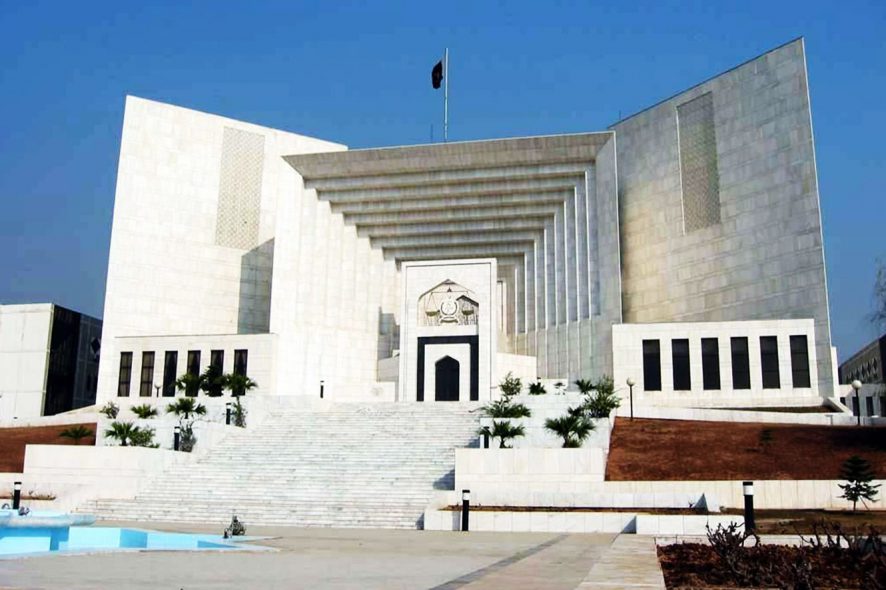Supreme Court of Pakistan: The Three-Judge Bench of Mushir Alam, Faisal Arab and Ijaz ul Ahsan allowed an appeal filed by a landlord and directed the tenant to vacate premises for failure to pay rent in terms of the tenancy agreement.
Respondent herein was inducted as a tenant in the appellant’s premises at a fixed monthly rent. The tenancy agreement was for a period of eleven months, and clause 15 thereof stipulated that rent shall be increased by seven per cent after every eleven months. However, after the lapse of eleven months, respondent remitted rent which was less than the amount stipulated under the agreement. Appellant (landlord) demanded the same, and on refusal, by respondent, he filed an eviction application before the Controller of Rents, who ordered respondent-tenant’s eviction. Respondent filed an appeal before the learned High Court wherein the learned Single Judge held that Section 7(5) of the Cantonments Rent Restriction Act, 1963 prohibits increase in rent beyond what is determined under the tenancy agreement unless a period of three years has elapsed, therefore, no default in the payment of rent had been committed. Aggrieved thereby, the appellant-landlord filed the instant appeal.
The Court opined that the tenancy agreement provided that the rent of the premises shall be increased by seven per cent after every eleven months. Under the urban rent laws tenancy continues even after the expiry of the term provided under the tenancy agreement. Hence where the tenant continues to occupy the tenement after the expiry of the term mentioned in the agreement the covenants of the agreement continue to apply except such covenants that are in conflict with the provisions of the applicable rent law.
It was held that the periodical increase in rent agreed between the parties under the tenancy agreement must be regarded as the rent determined by an agreement between the landlord and the tenant within the meaning of Section 7(5) of the Act. Section 7(5) of the Act prohibits any unilateral increase in rent, which surprises the tenant, before the expiry of three years. An increase, which is not unilateral but with the consent of both the parties cannot be subsequently disputed by the tenant unless it is called in question through an application made for fixation of fair rent.
In view of the above, it was concluded that the respondent had failed to pay rent in terms of the tenancy agreement and thus the impugned judgment was set aside.[Abdul Latif v. Parmacie Plus, 2019 SCC OnLine Pak SC 4, Order dated 25-02- 2019]






